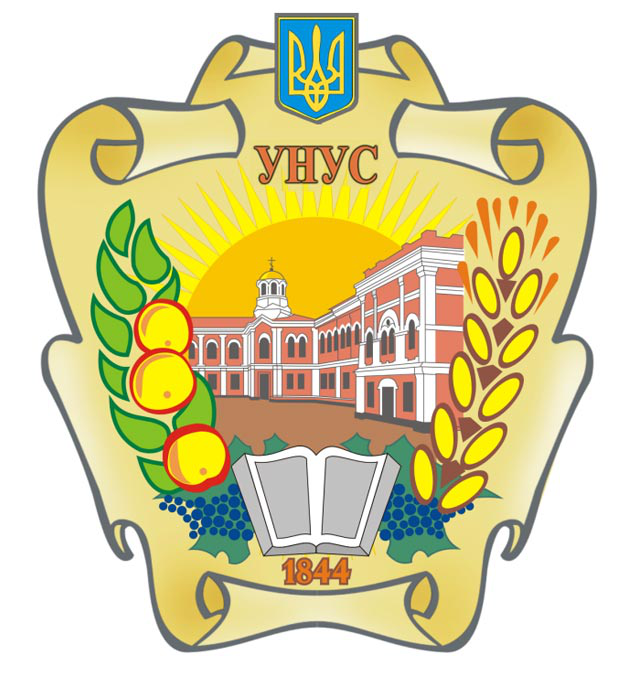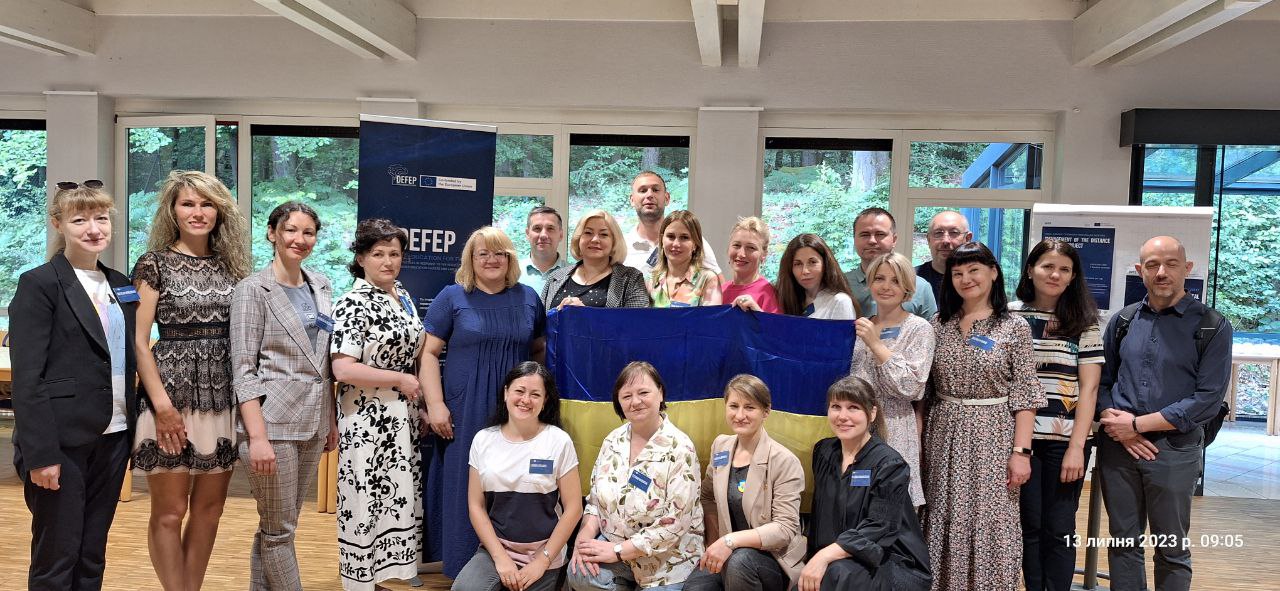
Scientists of the Uman National University of Horticulture got acquainted with the best practices of distance education during a working meeting at the University of Saarland
From July 10 to 14, the University of Saarland in Germany hosted a working meeting of participants of the international project “Erasmus+ KA2 DEFEP “Distance Education of the Future: EU best practices in response to the needs of modern higher education students and labor market representatives”, who shared their experience in implementing distance education. Scientists from the Uman National University of Horticulture also joined the discussion of relevant topics, as the educational institution is a participant in this large-scale project. The project itself is part of the Erasmus+ program and is aimed at developing distance education and implementing its best practices developed in the European Union.

During the week, the participants of the study visit to the University of Saarland had the opportunity to get acquainted with real examples of best practices and best practices in distance education implemented in European universities, exchange views and their own vision of the development of the problematic issue, and focus on the features of the distance education system in each of the countries represented at the meeting.
On the first day of the meeting, a meeting of the project’s coordinating board was held, during which prominent university representatives and project coordinators spoke. Among them: Vice President for Internationalization and European Relations, Professor Dr. Cornelius König; DEFEP Project Manager at the University of Saarland, Professor Dr. Astrid Fellner; DEFEP Project Coordinator, PhD in Economics, Associate Professor of the Department of Finance and Credit at Petro Mohyla Black Sea National University Olena Filimonova. The meeting was also joined by Elizabeth VENOR, an expert on intercultural learning, who conducted an exciting seminar for the participants.
Participants shared their experiences and visions of the project’s success and focused on strategies to help implement the plan. Separately, they discussed plans for operational and financial management of the project, including budgetary aspects. Particular attention was paid to the project management plan, so the efforts of the participants were aimed at creating a comprehensive program for the development of cooperation and project implementation.

The next day of the working meeting at the University of Saarland was held in an open space, which made it possible to communicate directly, discuss topical issues of introducing distance education in educational institutions and the challenges that have to be overcome. And thus, to find certain points of contact both in the vision of distance education and in the prospects for its development in the domestic and foreign educational spaces.
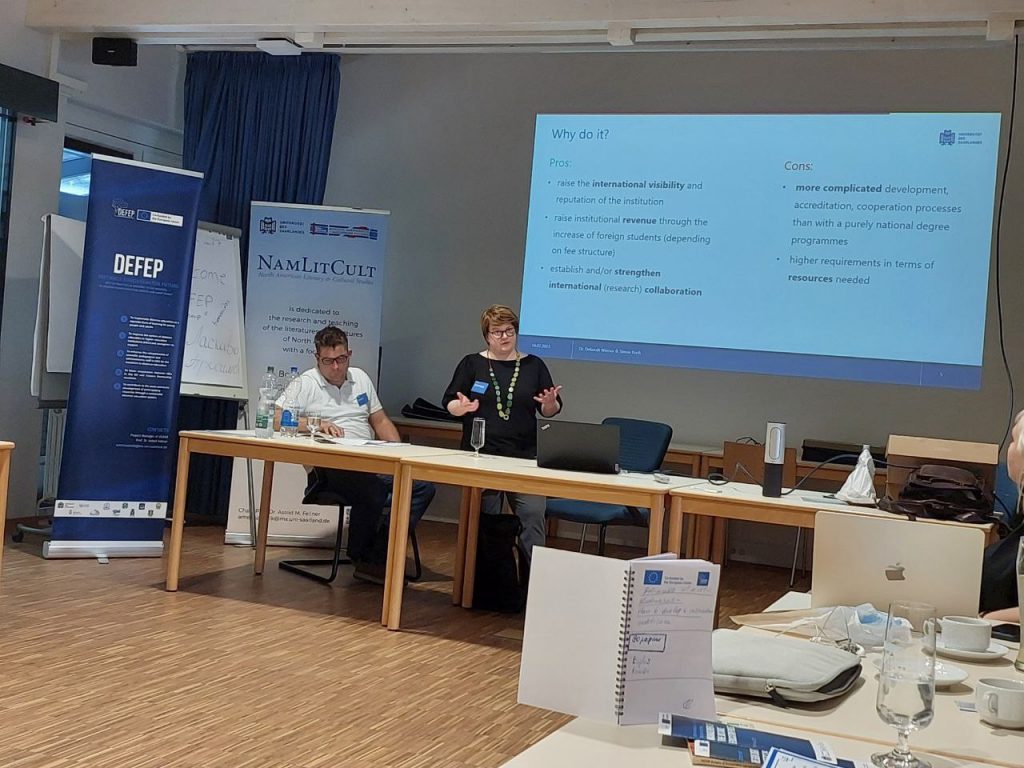
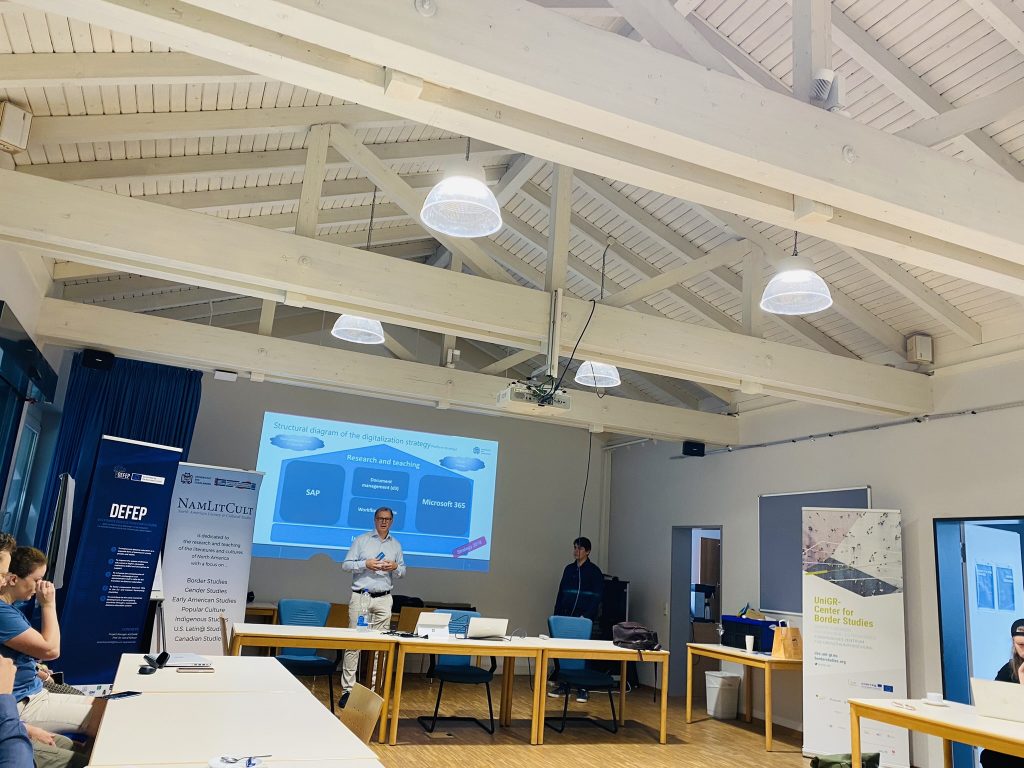
The fourth day of the working meeting of the participants of the international project “Erasmus+ KA2 DEFEP: Distance Education of the Future and EU Best Practices” was extremely effective and informative: the speakers shared examples of best practices and best practices in implementing distance education. The issues discussed that day are relevant today for all educational institutions. The work began with a presentation on distance learning at the University of Saarland. Dr. Sebastian HÖFNER (DaTa-Pin project) made an informative presentation about the technical equipment at USAAR – software and hardware. Diana KASPER (DaTa-Pin Project) spoke about Digital Exams at USAAR. Elizabeth MARKS presented a report on a real example of best practice, the EurIdentity Certificate Program. The information from Eva Nossem and Dr. Svitlana KOT, who spoke about the practical research “AI Across Borders: Integrating ChatGPT into Teaching”. At the end of such a busy day, the participants of the working meeting considered the presentation “DAAD Study Bridge Ukraine-Saar: English Philology”, which was presented by Drs. Galyna Zaporozhets and Kateryna Gaidarzhiy.
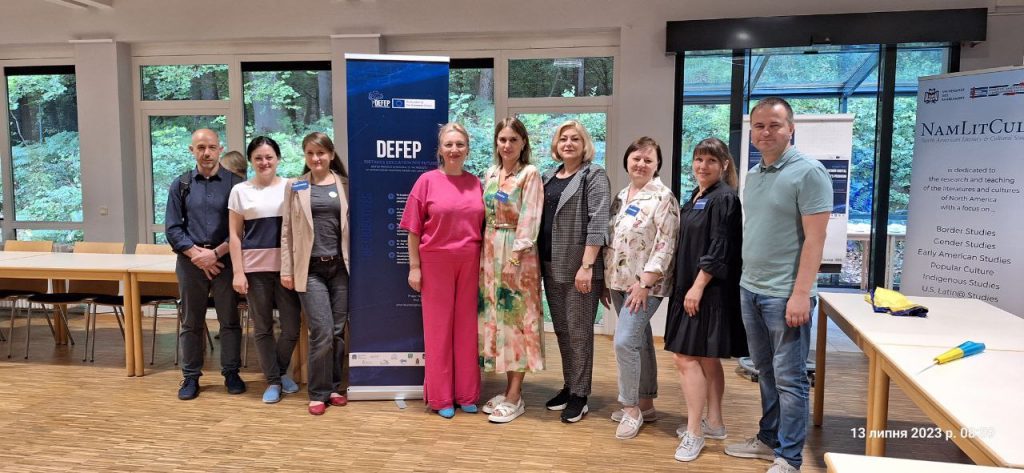
The conclusion of the Erasmus+ KA2 DEFEP working meeting “Distance Education of the Future: EU Best Practices in Response to the Demands of Modern Higher Education Students and Labor Market Representatives” at the University of Saarland in Germany was also very intense. The participants were greeted by Christian Wagner, Chief Digital Officer of the University of Saarland. The Dean of the Faculty of Humanities at the University of Saarland, Professor Dr. Astrid FELNER spoke about the development of educational programs for distance education. Dr. Astrid Fellner and Dr. Tobias Schank also presented examples of best practices in the “History of the Borderland”. Another example of best practices – “DAAD Study Bridge Ukraine-Saar: Bioorganic Chemistry” was presented by Prof. Dr. Klaus JACOB. “Summer School in Time of War” was a presentation of best practices presented by Prof. Dr. Astrid FELNER, Dr. Svitlana KOT and Eva NOSSEM. The presentation on the quality management system of the University of Saarland and the Joint Courses (by Dr. Deborah Werner and Simon Koch, Quality Assurance Office; Transform4Europe) was interesting, informative and useful. The working meeting was concluded by Janik Raphael STARK, who spoke about H5P in Moodle.

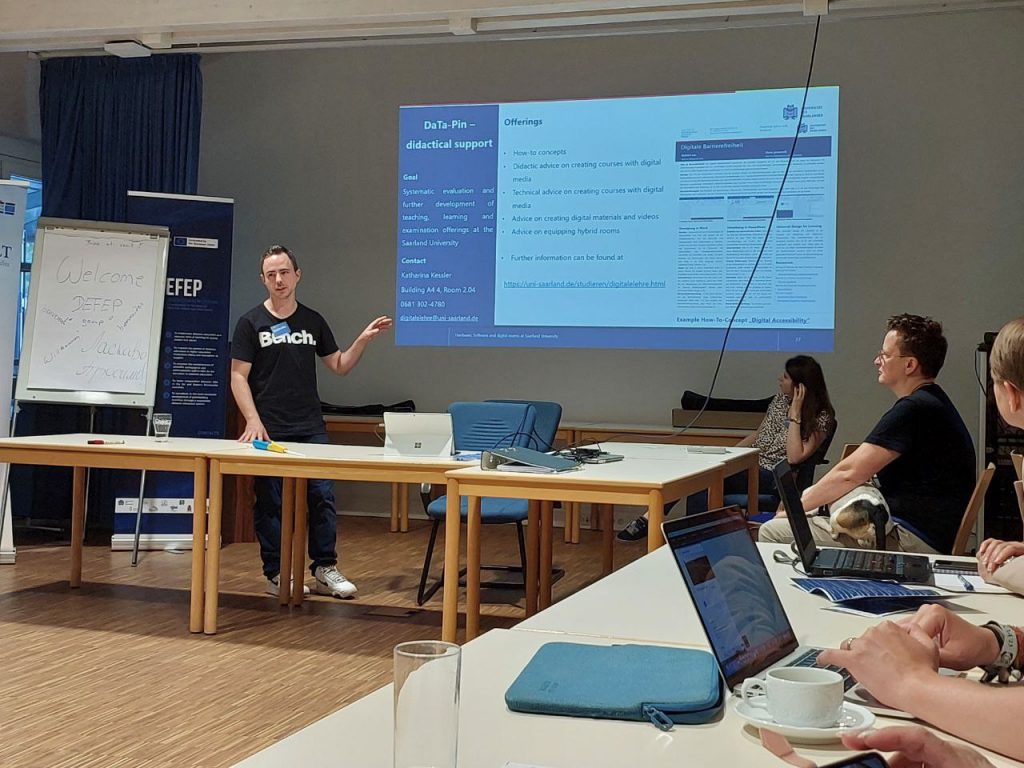
In addition to the working sessions, the participants had the opportunity to tour the campus and library of the University of Saarland, as well as visit the UniGR-Center for Border Studies; to get acquainted with the modern facilities of the educational institution, its history and fascinating architecture. This contributed to a better understanding of the essential context and educational opportunities of the University of Saarland.

At the end of the working sessions, the meeting participants had the opportunity to learn about the local culture by going on a fascinating city tour, during which they discovered its unique history, saw the sights, and gained new knowledge.

The project participants express their sincere gratitude to the University of Saarland for the intense days of research, learning and cooperation, and look forward to further work within the project and plan to continue working to develop distance education and implement best practices in each country, which will contribute to the development of a modern educational environment and ensure the proper quality of education in response to the needs of employers and the labor market.
